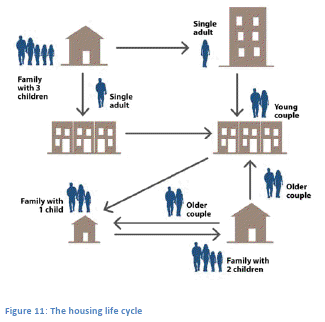“They were all four of them providing a service for the rest of the people in the café, simply by being here. They were the “local vibrancy” to which the estate agents referred. For this reason, too, they needn’t concern themselves too much with politics. They simply were political facts, in their very persons.”
My new place is a lovely treehouse in the hills surrounded by paths and trails and wilderness. It reminds me of a friend who grew up around here, when she moved to a more urban area said she missed running the trails in the evenings. One of my roommates this semester said she missed swimming in the pristine ocean, saying ‘not having the ocean is like not having carrots.’ I felt these people were being unappreciative, just because you grew up in a particular way doesn’t mean that it’s better or worse than another place, you can take a bus to the ocean or take a walk to some trails. When you grow up in nature, you gain a lot, but you miss out on a lot to, it’s often harder to access culture, but most importantly to me, you miss out on diversity.
I recently read Zadie Smith’s new book, NW and it reminded me of the a lot of racial issues around geography and urbanity. One thing I appreciate about Zadie Smith is her insight into middle-class black life. I don’t envy my mother’s cohort of educated black (often single) mothers who had to chose between raising a child who grew up in the comfort of an urban area around black people (knowing her roots), and the extreme discomfort of being the inkspot in a richer, whiter neighborhood. My mother chose to make our home in a middle-class neighborhood that was very mixed racially, and send us to schools where my brother and I were often the only people of color in our class. I think it worked out great for us, but I don’t envy people who have to make such difficult decisions.
People who grow up in urban centers, projects like the ones described in NW, have to deal with the realities of poverty, criminality, lack of access to education, and all that this entails. But people who grow up as the token brown person have to deal with the realities of not being represented in the culture that surrounds them and the pressure of representing their entire race and class, a pressure I’ve been feeling a lot in my job lately. The weight of that burden is difficult to describe for someone who has never experienced it. I know it’s not my responsibility to teach everyone what black people are like, but when I’m the only brown woman on my team, there is added pressure to perform. I carry this burden on behalf of my generation (people think millenials are lazy), for my locale (people think Californians are lazy), for my race (people think black people are lazy), for my sex (people think women aren’t smart, and can’t do science), for my family and for myself. A friend of mine was telling me how fun it is to act crazy sometimes, frankly I don’t think I have to luxury of lunacy.
I listened to the Slate Audio Book Club on NW. On the podcast they discussed the character Keisha, a black woman who grew up in the projects and became a successful lawyer. She was my favorite character in the book and the one I related to the most. The people on the podcast seemed to believe that the character could never really be successful. That she was bound to fall from grace in a way. I don’t think she had a dramatic fall from grace, but I also don’t think such a fall is so inevitable. In any case, I liked the book, and the discussion and I’d highly recommend both.
Growing up where I did I was surrounded by a diverse group culturally, socio-economically, and ethnically. I’ve written a little about this before but as I’ve lived and moved to other places I have found that this is very important to me (and that such a mix is pretty much unique to Oakland). But it brings up the question, what are we entitled to in a home? Is what your parents had good enough? Is what you had good enough? are you entitled to the same experiences as your peers? do you need wilderness to breathe free? do you need to live with both a mother and a father? do you deserve your own room? How much culture are you entitled to and what?
NOTE: I have started a new job (see resume) and don’t have much time to blog. It’s probably gonna be more like once a month from now on.
